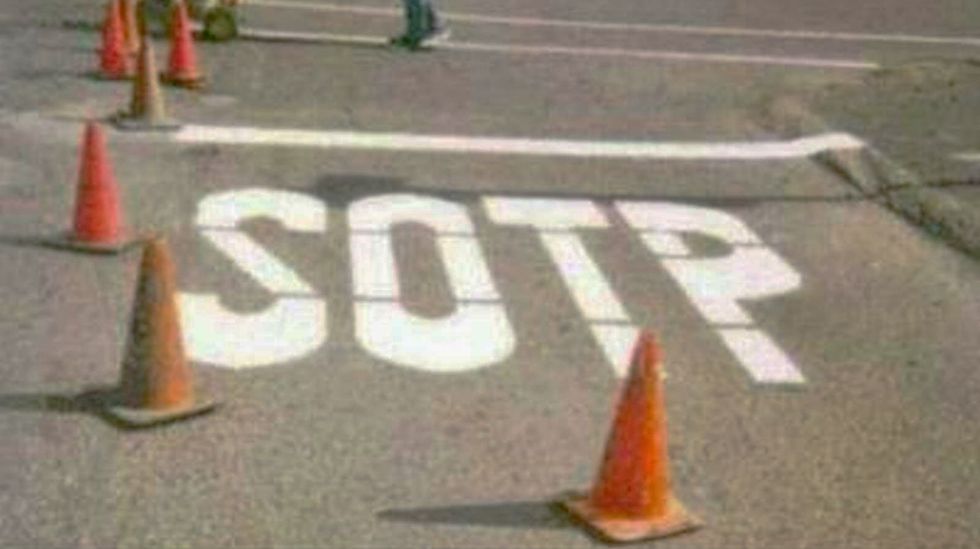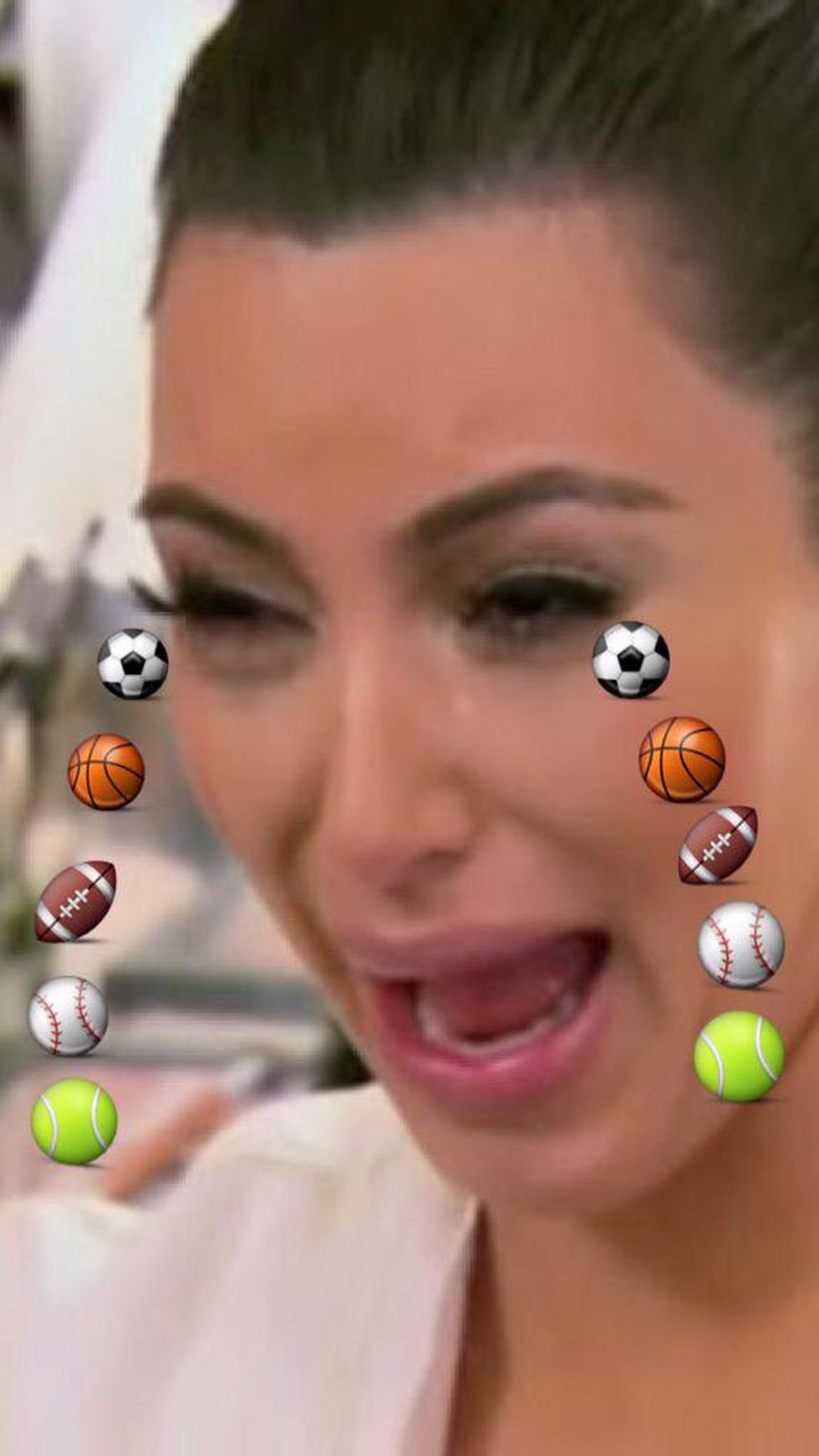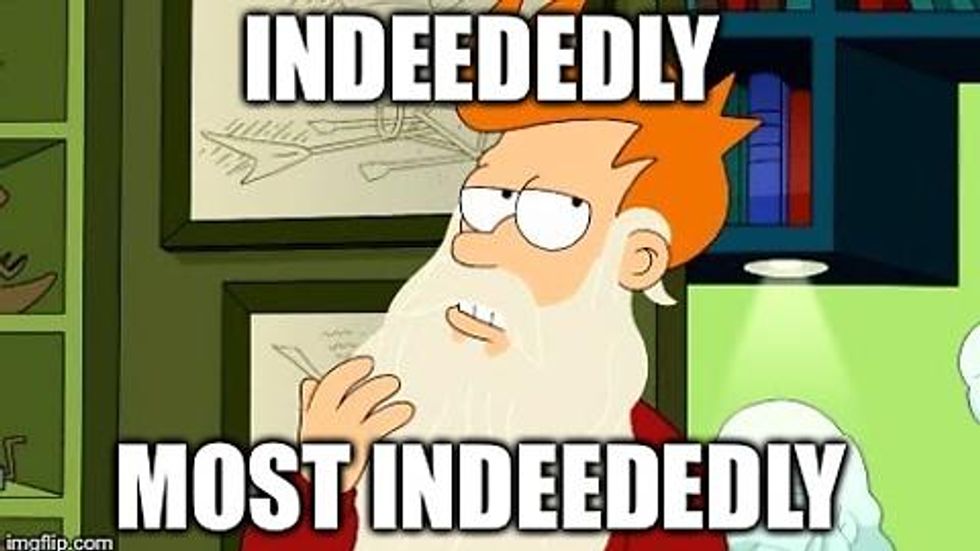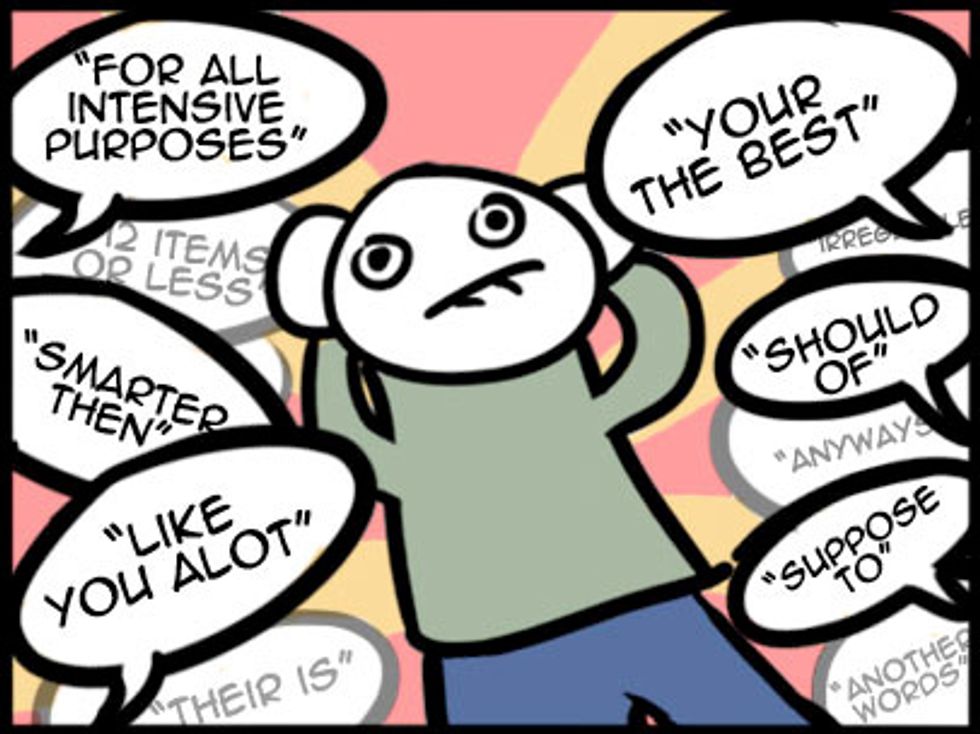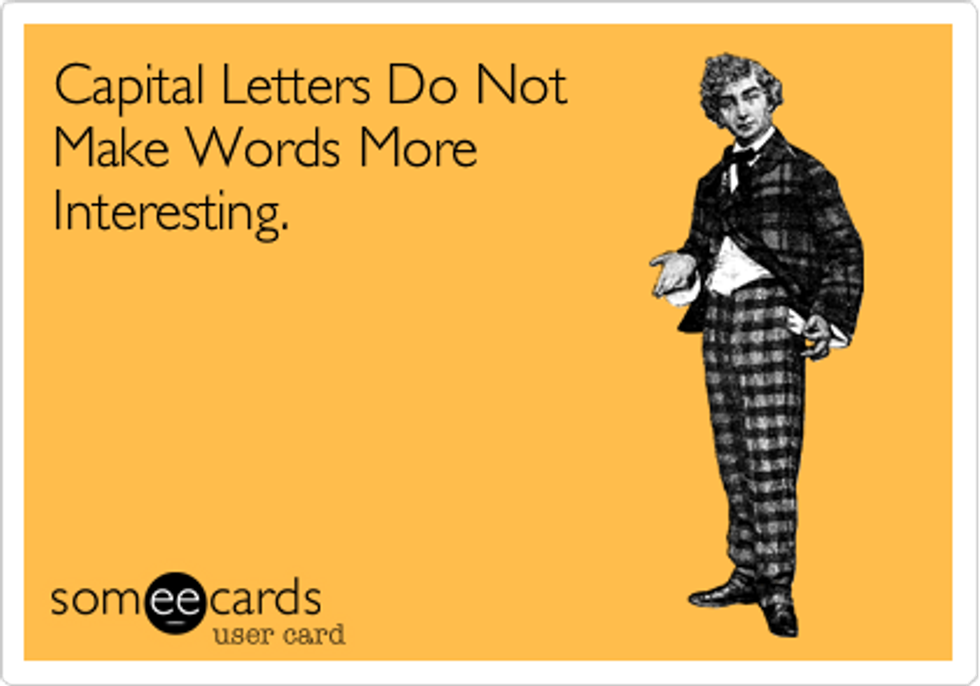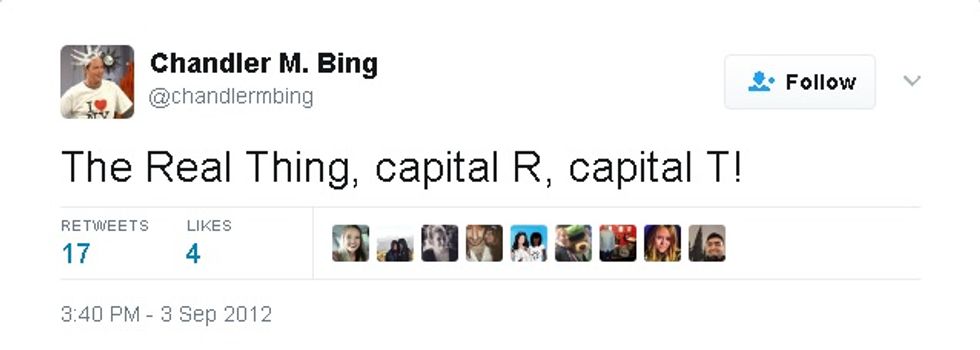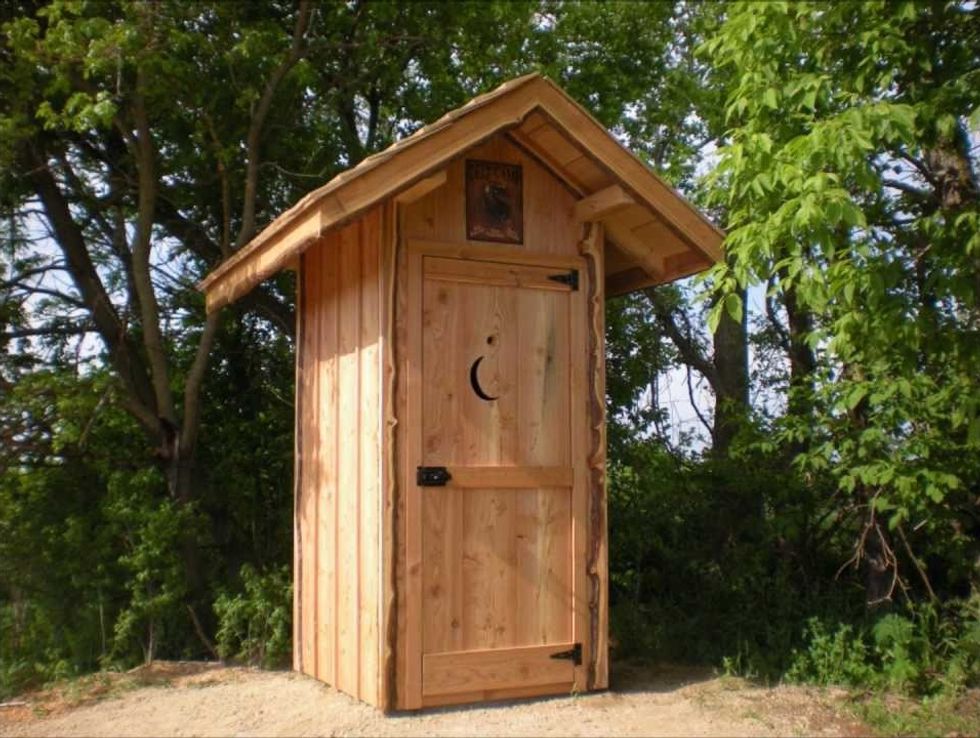In my last article about grammar mistakes, I half-lamented that I'd never run out of things to comment on. Funnily enough, I started compiling this list almost immediately after I submitted that article for publishing because I switched over to Facebook and encountered item #5.
It's never going to stop.
Forgive the cliche, but if I had a nickel for every time I've seen one of these, I'd be rich in no time. Like, never-have-to-work again, Scrooge-McDuck-rich (only not that grumpy and greedy). Until then, though, I'll just hope that this helps some poor, unfortunate soul who doesn't know they're making a mistake... or at least that something I've written here is good for a laugh.
5. "Balling" vs. "Bawling"
This might have been closer to the #1 spot, except that it amuses me.
Let's do the definitions, then, shall we? "Balling," generally followed by the word "up," is to make something into a roughly spherical shape, like if you're balling up your bed's fitted sheet because you just can't fold the darn thing. It can also be used to mean people playing some sort of sport, e.g., basketball or baseball (or, you know, something involving the word ball, otherwise it wouldn't really make sense). Describing something as "balling," as an adjective, is slang for saying it is exceptionally hip, cool, or "fly," according to Urban Dictionary, and it apparently can also be used to indicate that someone is exceedingly wealthy. I actually didn't know that one.
You learn something new every day.
"Bawling," on the other hand, is what most people mean to write when they type that they are "balling." While the latter might also be true, "bawling" is weeping, crying, wailing, perhaps inconsolably. Usually, "bawling" is what people mean to type when they say that they are "balling their eyes out" (and I really don't want to know what "balling one's eyes out" would entail...).
4. "Genious"
I'm always saying that, generally, people want to make things shorter: consider our constant "txt tlk" and numerous abbreviations outside of that. That's why, with the possible exception of extreme emphasis (if we're ever in private conversation, you might see me extend the word "now" into "NAOUGHW," always in all caps), I don't understand typos that add extra letters.
Like this one.
The correct spelling of this word is actually "genius," but a lot of people really want to add that "o" to it. Maybe because they associate longer words with intelligence--with genius--and think it must be longer than they think it is. Who knows? What is certain is that you definitely don't look like a genius if you misspell the word "genius."
3. "Bias"
Okay, I couldn't find a good image for this one, so here's a guy that's as bothered by other grammar mistakes as I am when people say that they are "bias" instead of saying that they are "biased." Quick comparison of the definitions:
Bias - noun - aparticulartendency,inclination,feeling,oropinion,especially onethatispreconceivedorunreasoned; also, prejudice
Biased - adjective - having or showing bias or prejudice
When you say that you are "biased"--inclined toward thinking a certain way, e.g., that your child is intelligent--you are describing yourself, which is what adjectives do. This is why you are biased. You are not "bias," the entire idea of a preconceived inclination, feeling, or opinion. Even if your bias is really, really strong, you are still not "bias." You're "biased." When spoken aloud, people often drop the "-ed" of "biased" somewhat, making it sound like they're saying "bias," but this is grammatically incorrect (and they also mean "biased," even if that isn't what they're saying). Just try to remember that you're describing yourself, just like you would when you describe yourself as tired or excited (which, coincidentally, also end in "-ed"); you're not embodying a concept.
2. "Bisquit"
The first time I saw this was when I went out with a now-ex-boyfriend and he later posted about the "cheddar bay bisquits" at the restaurant we went to. I texted my brother about it, and he replied with something to the effect of "he really needs to quit spelling it that way." Further proof we're definitely related. Anyhow, aside from learning that the relationship couldn't possibly last, I discovered that people don't know how to spell "biscuit."
"Biscuit" is kind of a weird word, I'll grant you that, but why people have decided to spell it by dropping a "q" in there baffles me (also, they probably don't know that "Bisquit" is a brand of cognac, which I actually learned doing a search for this article). If anything, I'd guess they'd drop the second "i" and spell it "biscut," or drop the "u" and spell it "biscit" because that's how most people seem to pronounce it. But this is similar to why I can't figure out why people try to spell "definitely" with an "a"--it just doesn't seem to fit.
Their rationale might be that "q" can, rarely, make a sound like a hard c, such as in the word "qin," which is a type of Chinese instrument. What these well-meaning folks miss is that when they add in the "u" after it--as they're doing--it usually doesn't make that same sound, sounding instead like "kw" as demonstrated in the words "quick," "quiet," or "quit." Alternatively, it might be that the name of the popular brand "Bisquick" is lurking somewhere in the backs of their minds, so they're mimicking its spelling (which still doesn't make sense, because the "qu" in that name still makes the "kw" sound).
So take my brother's advice and quit spelling "biscuit" with a "q"!
1. Random Capital Letters
This is not the most serious offense on this list. I'd actually probably give that title to our (dis)honorable mention. But random capital letters in the middle of sentences (or even words?) is by far the one that annoys me the most and it has thus landed here at the #1 spot.
This is again one of those things that people do that I don't understand. If it shouldn't be capitalized, then why capitalize it? There are some exceptions, most notably for emphasis or to denote importance:
Chandler was emphasizing that what he was feeling could be true love, that it was serious. Like many other devices available for emphasis, when used sparingly, this is a good way to show importance.
But so Many people just kind of randomly Stick Capital letters at The beginnings of Words and it Really Bothers Me. I don't get it--it goes against everything I know about people being lazy, because it takes more effort to press the "shift" key and produce a capital letter than it does to just type a word normally. Mostly, this makes the typist look careless at best, clueless at worst, and shouldn't be practiced.
(Dis)honorable mention: "Loo" vs. "Lieu"
I'm pretty sure I've mentioned this at some point before, but since I've seen it again, I'm bringing it up again.
"Loo" and "lieu" are homonyms: they sound alike, but they don't mean the same thing. The quick and dirty:
"Lieu" means "instead," e.g., "in lieu of class, read chapter five and post on the class website."
"Loo" is British slang for "toilet."
You really don't want to get these mixed up, because "in lieu" and "in loo" are very different things.

